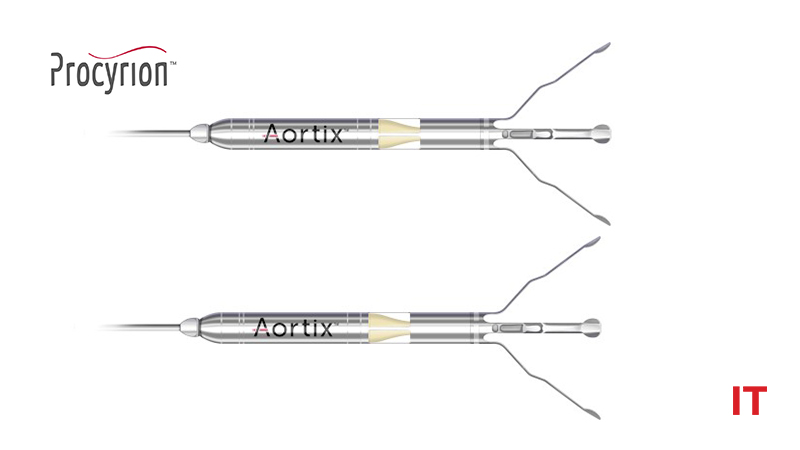Procyrion, Inc., a medical device company dedicated to improving outcomes for patients with cardiac and renal impairment, announced it has successfully secured new inpatient hospital ICD-10-PCS procedure codes applicable to its Aortix percutaneous mechanical circulatory support (pMCS) technology. The new codes represent a significant milestone as the company plans to initiate its US IDE pivotal trial, the DRAIN-HF (Diuretics Alone vs. Aortix Endovascular Device for Acute Heart Failure) study, to evaluate the Aortix system in patients with acute decompensated heart failure (ADHF) in the coming months.
There are three new codes (effective October 1, 2023) allowing facilities to report the implantation, revision, and removal of a short-term external heart pump positioned in the descending thoracic aorta. The implantation/insertion or revision codes will result in MS-DRG 215, consistent with other commercially available pMCS technologies such as the Impella device. MS-DRG 215 will have a national average hospital reimbursement of $71,520 in FY 2024 (effective October 1, 2023).1,
Aortix is a catheter-deployed pump that is placed in the descending thoracic aorta designed to directly unload the heart and increase cardiac performance while increasing perfusion to the kidneys. The DRAIN-HF pivotal trial (NCT05677100) will evaluate the safety and effectiveness of the Aortix pump compared to standard of care medical therapy including high dose IV diuretics in patients hospitalized with ADHF who have persistent congestion and demonstrated diuretic resistance despite optimal medical management.
Approximately 40% of ADHF patients have cardiorenal syndrome (CRS), a complex disease where underlying heart failure leads to reduced blood flow to the kidneys, causing the kidneys to become less effective at removing excess fluid from the body. Effective treatment options for CRS are lacking, as evidenced by up to a 25% rate for heart failure rehospitalization or mortality at 30 days4,5 for those patients who remained clinically congested after 96 hours of optimal medical therapy and were discharged from the hospital.
“Based on our pilot study, Aortix has the potential to provide rapid decongestion and significant improvement in kidney function to these critically ill patients, which in turn has the potential to reduce heart failure rehospitalization and mortality,” said Eric S. Fain, MD, President and Chief Executive Officer, Procyrion. “We anticipate initiating our pivotal IDE trial later this year and believe the new procedure codes will reduce barriers for enrolling appropriate patients who need access to this life-changing medical device.”
SOURCE: Prnewswire

































